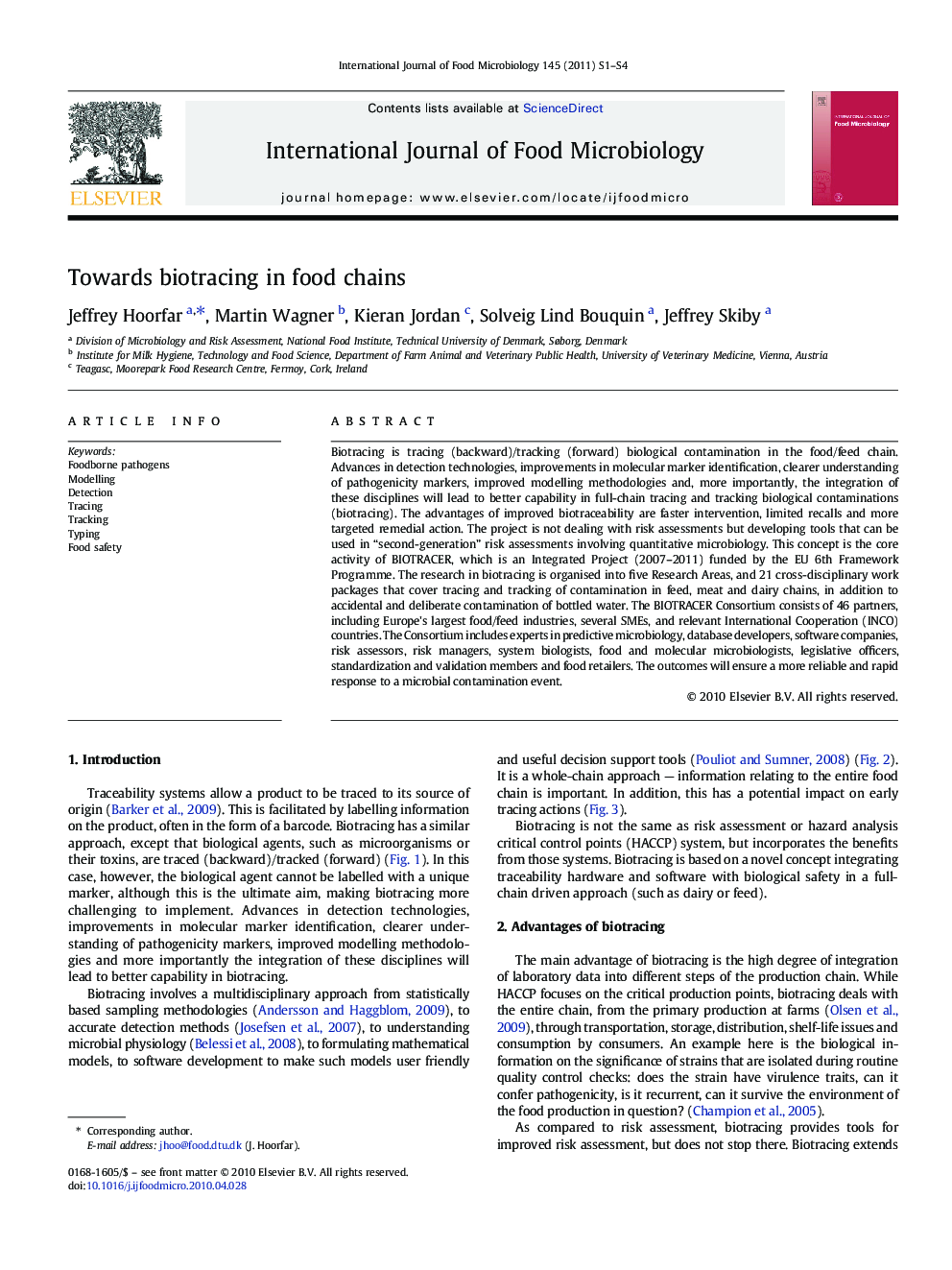| Article ID | Journal | Published Year | Pages | File Type |
|---|---|---|---|---|
| 4367866 | International Journal of Food Microbiology | 2011 | 4 Pages |
Biotracing is tracing (backward)/tracking (forward) biological contamination in the food/feed chain. Advances in detection technologies, improvements in molecular marker identification, clearer understanding of pathogenicity markers, improved modelling methodologies and, more importantly, the integration of these disciplines will lead to better capability in full-chain tracing and tracking biological contaminations (biotracing). The advantages of improved biotraceability are faster intervention, limited recalls and more targeted remedial action. The project is not dealing with risk assessments but developing tools that can be used in “second-generation” risk assessments involving quantitative microbiology. This concept is the core activity of BIOTRACER, which is an Integrated Project (2007–2011) funded by the EU 6th Framework Programme. The research in biotracing is organised into five Research Areas, and 21 cross-disciplinary work packages that cover tracing and tracking of contamination in feed, meat and dairy chains, in addition to accidental and deliberate contamination of bottled water. The BIOTRACER Consortium consists of 46 partners, including Europe's largest food/feed industries, several SMEs, and relevant International Cooperation (INCO) countries. The Consortium includes experts in predictive microbiology, database developers, software companies, risk assessors, risk managers, system biologists, food and molecular microbiologists, legislative officers, standardization and validation members and food retailers. The outcomes will ensure a more reliable and rapid response to a microbial contamination event.
